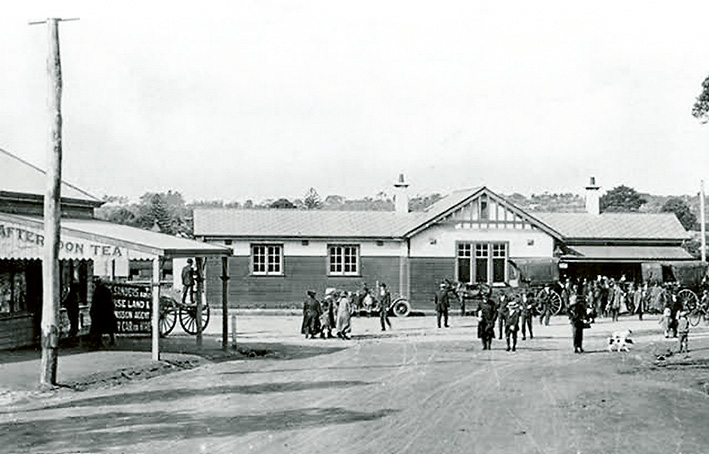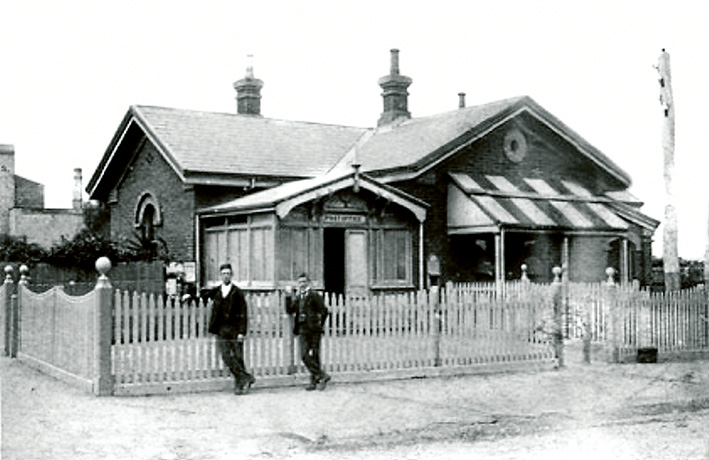
 CITIZENS of 19th century Mornington would be astonished at the latest technology that guides tourists and locals through the history of Main St.
CITIZENS of 19th century Mornington would be astonished at the latest technology that guides tourists and locals through the history of Main St.
No more guide books, pamphlets or humans leading a group – it’s an audio tour (or podcast) with 18 recordings that can be downloaded by scanning a QR code on plaques placed near historic buildings on Main St and the Esplanade.
The tour complements a revised heritage walk brochure produced by Mornington and District Historical Society and the chamber of commerce for the town’s 150th in 2011. The project also saw the replacement of historic signs installed many years ago, some of which had disappeared or been damaged.
The audio tour was launched at the society’s headquarters – the old post office – on Friday 30 October. Scanning one of the QR codes with a smartphone or tablet downloads the podcast as well as images and the audio script, which was developed for the hearing impaired. A QR scanning app is needed.
Podcasts describe the town’s courthouse and lock-up; Coffee Palace; Commercial Bank; Blake St; Railway Store; Grand Hotel; Main St south; old fire station; Plaza Cafe; Bradford Dairy; livery and coach stables, Oriental Bank and Allchin’s Store; Males Butchery and the hairdresser; cottage, billiard room and shops; Mechanics’ Institute and RSL Club; Federal House; old post office; and old State Savings Bank.
Historical society president Diane White told a gathering (which included federal MP Bruce Billson, state MP David Morris, shire mayor Cr Bev Colomb, shire heritage planner Dale Kelly, and society members) that she heard about QR codes at a history conference in South Australia several years ago.
“One of the speakers said it was how to get young people interested in history as they liked using their smartphones for innovative purposes,” she said.
Seattle in the United States pioneered QR codes for history walks.
The audio project cost $4480 and was covered by the federal government’s Community Heritage and Icons Program.
Mr Billson said the project had brought to life Mornington’s rich history.
“It includes online access to local history and stories narrated by local identities, which enables residents and visitors alike to tap into the society’s remarkable resources,” he said.
“The audio project will enable the community to celebrate our rich history for generations to come in a fun and engaging way.”
Cr Colomb said the project would be good for students.
Details: morningtondistricthistory.org.au
- The QR (quick response) code was developed by the Japanese auto industry in 1995 to track vehicles on the production line. It is a two-dimensional barcode that contains far more information than a normal product barcode. QR codes are used for a wide variety of purposes including tracking, document management, marketing and advertising, ticketing, and to link consumers to websites. A Japanese stonemason is carving QRs on gravestones to tell the story of the dear departed.


